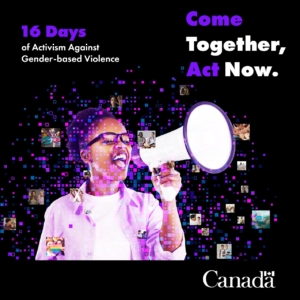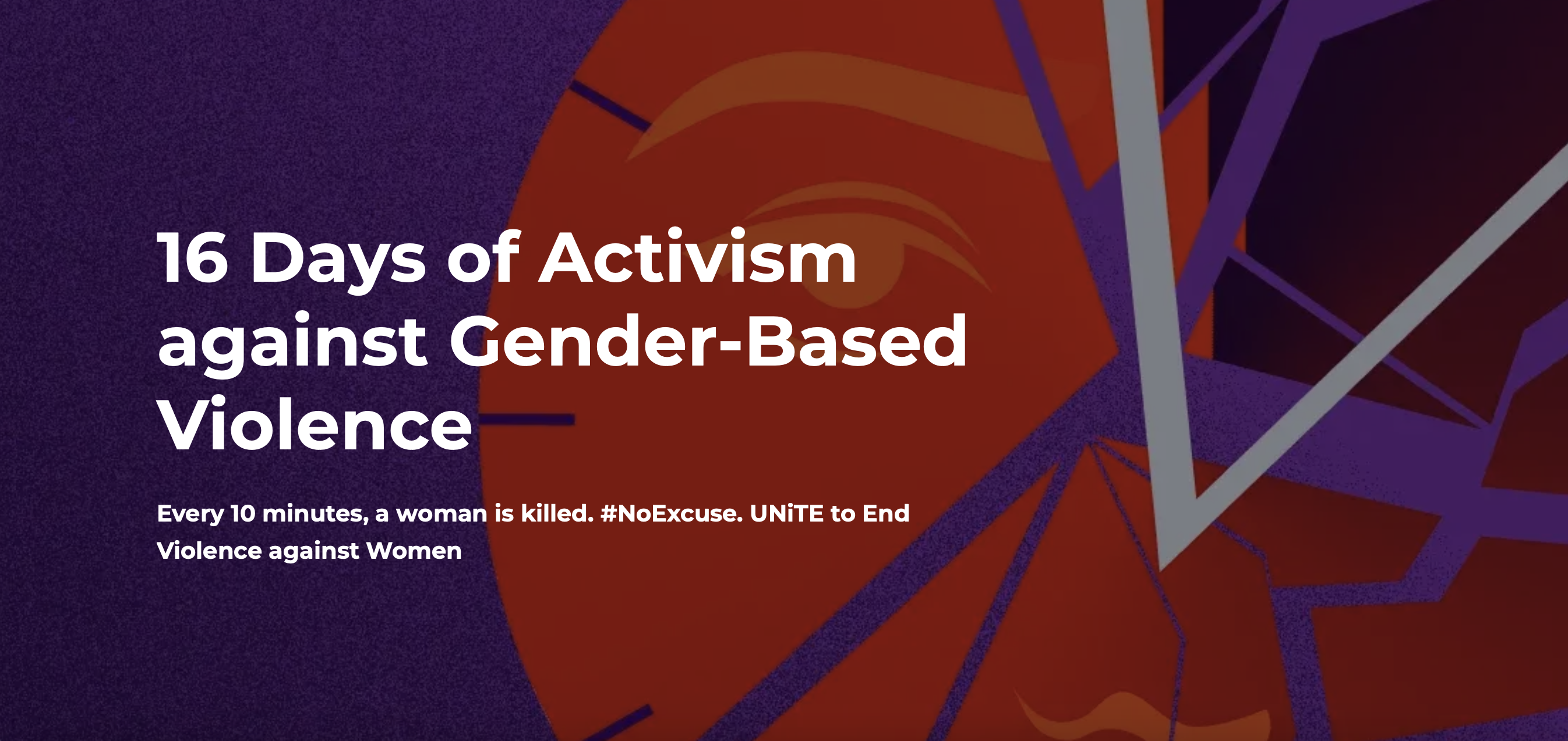Report on the 16 Days of Activism Against Gender-Based Violence and Its Connection to Homelessness in the Capital Region
NoExcuse: Ending Violence and Homelessness for Women and Girls in Victoria**
On December 10th, 2024, the International Day of Human Rights was marked with a powerful reflection on the intersection of violence against women and girls and homelessness in the Capital Region. This day also marked the conclusion of the 16 Days of Activism Against Gender-Based Violence, a global movement that began on November 25th, calling for urgent action to eliminate violence and support survivors.
The Alliance to End Homelessness in the Capital Region (AEHCR) participated in the global movement, emphasizing the critical need to address gender-based violence and its impact on homelessness, particularly for women and girls. The 16 Days of Activism provided an opportunity for the local community in Victoria, BC, to stand together, raise awareness, and take meaningful action to combat this devastating cycle.
The Link Between Violence and Homelessness
Throughout the 16 days, local organizations and advocates highlighted the strong connection between violence against women and homelessness. As noted in the report by Battered Women’s Support Services (BWSS), intimate partner violence is a leading factor in 50% of femicides in British Columbia, with 92% of perpetrators identified as male in 2024. This stark reality was brought into sharp focus during the campaign, which revealed how often women experiencing violence are forced to flee their homes, only to face the harsh reality of homelessness.
In the Capital Region, many women escaping violent situations found themselves with no safe place to go. The lack of affordable housing, limited shelter spaces, and the absence of specialized services for women left many vulnerable to further violence and exploitation. Women who are already homeless face even greater risks, including sexual violence and exploitation, with few resources available to help them escape these dangerous situations.
Invisible Homelessness in Victoria
The 16 Days of Activism also shed light on the growing issue of invisible homelessness in Victoria. Women fleeing violence often find themselves sleeping in cars, couch surfing, or moving between temporary shelters, all while living in constant fear for their safety. For many, the only option to escape homelessness is to return to abusive relationships, further entrenching them in a cycle of violence and instability.
Local organizations, including AEHCR, Victoria Women’s Transition House, and Pacific Centre Family Services, worked tirelessly to raise awareness about the challenges faced by women experiencing homelessness due to violence. These organizations provided critical support through emergency shelter, counseling, and advocacy, but the lack of adequate resources continues to strain their efforts. Indigenous women, racialized women, and transgender women were identified as particularly vulnerable, facing additional barriers in accessing support and services.
Urgent Need for Investment in Prevention and Support Services
The 16 Days of Activism underscored the need for increased investment in both prevention and support services for survivors. The UNiTE Campaign, which ran through this period, called on governments worldwide to take immediate action by increasing funding for prevention programs and better supporting survivors. Unfortunately, as the campaign highlighted, current investments in this area are woefully inadequate, with only 5% of government aid dedicated to addressing violence against women and girls, and less than 0.2% allocated for prevention efforts.
In Victoria, the urgent need for increased funding and resources was clear. Community advocates and organizations echoed the call for more affordable housing, additional shelter spaces, mental health support, and economic empowerment programs for survivors. Without these investments, the homelessness crisis will only continue to worsen, and the cycle of violence will remain unbroken.
What Happened During the 16 Days of Activism
Throughout the campaign, the community came together in solidarity, participating in events aimed at raising awareness and advocating for change. The #NoExcuse hashtag gained traction on social media, with people sharing stories and calling for action to end violence against women and girls. Local events included vigils, rallies, and community discussions on the intersection of violence and homelessness, culminating in the December 6th National Day of Remembrance and Action on Violence Against Women.
Advocates also used the 16 Days to call on local leaders to increase funding for housing and support services. They urged Canada to ratify international treaties such as the Belem do Pará Convention, which seeks to eliminate violence against women and girls but has yet to be ratified by the country. As the 16 Days of Activism concluded, the message remained clear: no woman should have to choose between safety and a home. The cycle of violence and homelessness is not just a local issue, but a global crisis that requires immediate and sustained action. Throughout this period, the community of Victoria stood united in the fight for women’s safety, dignity, and human rights.
Looking ahead, there is hope. The awareness raised and the actions taken over the past 16 days have laid the groundwork for continued advocacy and progress. By working together, we can end the cycle of violence and homelessness, ensuring that every woman has access to a safe home and the support she needs to rebuild her life.
As we reflect on the marked day of December 10th, the International Day of Human Rights, it is clear that there is still much work to be done. But the momentum built during these 16 days serves as a reminder that change is possible, and it begins with us.

